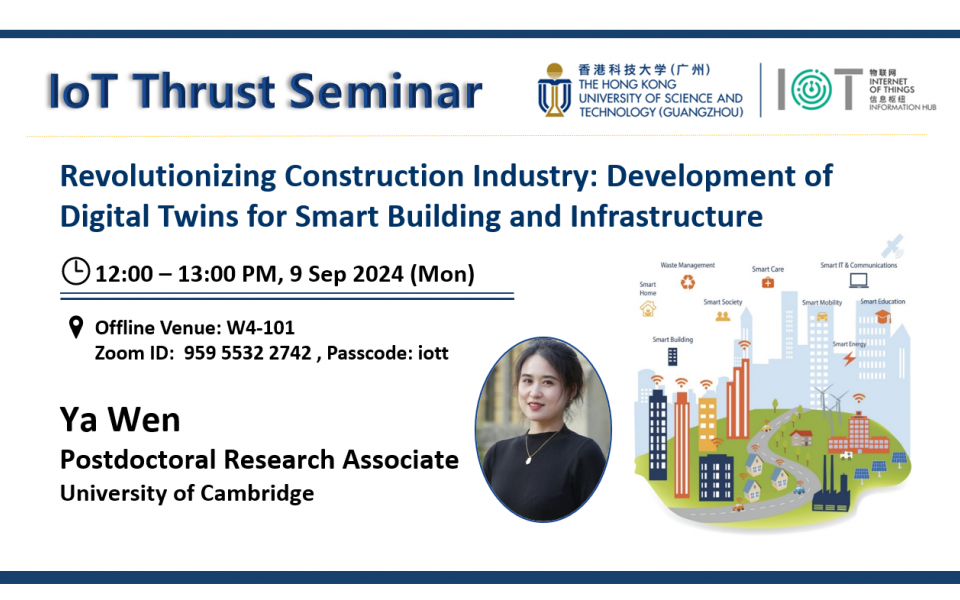IoT Seminar | Revolutionizing Construction industry: Development of Digital Twins for Smart building and Infrastructure
Supporting the below United Nations Sustainable Development Goals:支持以下聯合國可持續發展目標:支持以下联合国可持续发展目标:
The integration of cyber-physical systems is revolutionizing the construction industry by enabling more efficient and intelligent management of building and infrastructure assets throughout their lifecycle. This seminar offers a comprehensive examination of the role of cyber-physical systems in advancing sustainable and smart infrastructure, with a particular focus on the digital twin framework. Digital twins, powered by Building Information Modelling (BIM), Geographic Information Systems (GIS), the Internet of Things (IoT), and machine learning technologies, create dynamic, data-driven representations of physical assets. The seminar will explore the design and development of system-to-system digital twins, highlighting recent research on how data can be harnessed for continuous monitoring and optimization in the construction industry. Furthermore, the application of machine learning techniques to enhance digital twin construction and enable predictive maintenance will be addressed. Key challenges facing the construction sector in the context of cyber-physical systems implementation will also be discussed, providing insights into the evolving landscape of construction technology.
Dr. Ya Wen is currently a Postdoctoral Research Associate in the Construction Information Technology (CIT) Laboratory, Department of Engineering, at the University of Cambridge. She earned her PhD from the Department of Real Estate and Construction at the University of Hong Kong, where her research focused on semantic knowledge modeling for facilities and asset management using the OWL methodology. At the University of Cambridge, Dr. Wen leads the UOC work package for the European Union Agency for the Space Programme-sponsored project, Enabling Innovative Space-Driven Services for Energy Efficient Buildings and Climate Resilient Cities (BUILDSPACE). Her work primarily involves leveraging Machine Learning (ML) and Artificial Intelligence (AI) to automate the creation of geometric digital twin models from building point clouds. These Digital Twins are essential for informed decision-making in energy demand prediction, urban heat management, and urban flood analysis. Additionally, her ongoing research explores innovative methods for Digital Twin construction, incorporating linked data and Large Language Model (LLM) technologies.
